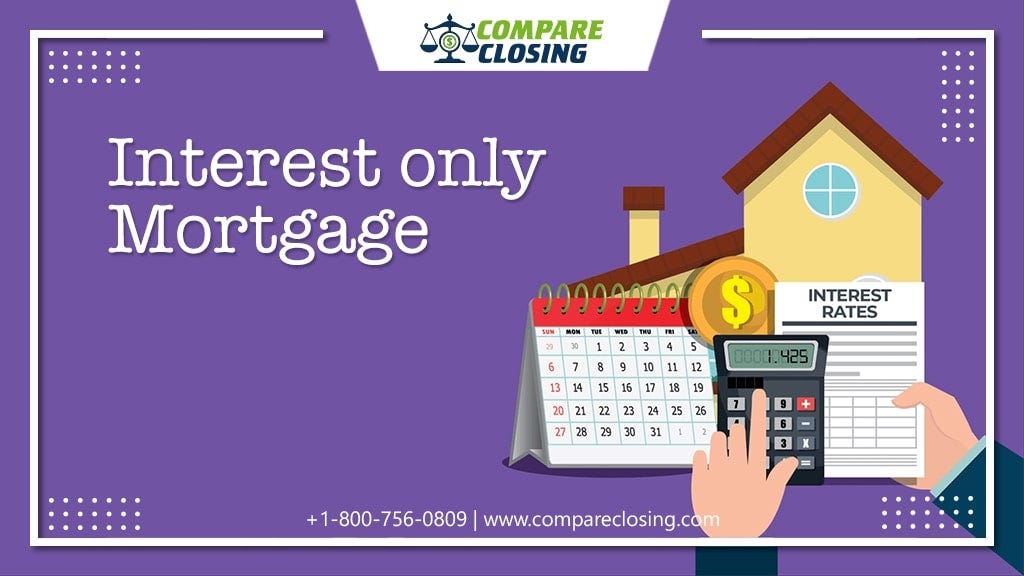
Introduction
There are a lot of people who are looking to buy homes and trying to understand different types of loan programs.
Buying a new home is a big step. You need to ensure that you get the best of the mortgage options which suit your situation.
One such option is an interest-only mortgage. In this post, we will learn what is an interest only loan and how does it work.
What Is An Interest Only Mortgage?
When you get any type of loan you usually pay principal and interest payments. An interest-only loan is a loan where the borrower will only pay the interest amount and not the principal amount according to the term of the loan.
For example, if your interest only loan has a five-year term, you will be paying only the interest amount for the first five years.
After the five-year term is complete, you would either have to refinance your current mortgage, pay a lump sum for the principal amount borrowed, or sell the property to pay off the principal amount.
Interest-only loans are Non-QM mortgages which means that they are not backed by Fannie Mae or Freddie Mac guidelines.
These types of mortgages are either going to be retained by the lender himself or they would be sold directly to the investors.
Why Should You Get An Interest-Only Loan?
Interest only mortgages works very well as you know that you are only making interest amount, which means you have lower monthly payments.
This helps from a cash flow perspective as the principal amount that you otherwise pay on a standard loan could be used for multiple reasons.
The principal balance of the loan will never decrease in an interest-only loan. However, you are free of those extra few hundred dollars a month that you can allocate somewhere else and still get to live in your own home.
If you are not planning to live in the house for long, the interest only mortgage could make better sense as you would be selling the house in a few years and pay off the principal amount once the house is sold.
That way you save a lot of money by excluding the principal amount payment.
Apart from that, the benefit of getting interest only loans is that the interest rates are a little bit lower compared to any other conventional or FHA mortgages.
Why Should You Not Get An Interest Only Mortgage?
In an interest only mortgages you won’t be repaying the principal amount borrowed, this means you will still owe this amount once your interest only term is completed.
If you are planning you stay in the house longer, then you might have to refinance once the interest only term is over. Refinancing a mortgage would not only have closing costs associated with it, but it will also have the interest charged once again for the balance amount.
In other words, you would be paying twice as interest or even more for the same amount of loan.
If you are not able to qualify for the conventional mortgage at the time of the refinance, you might have to sell the house to pay off the balance leading you to search for other options to put a roof over your head.
If you are unable to either refinance or sell the house, the lender may foreclose on your property having a negative impact on your credit.
When you get an interest only loan, you do not build any equity on the house as there are no principal payments towards the amount borrowed.
At the end of an interest only loan when you refinance or sell the house, if the property value drops significantly, you can end up owing more than what you owe on the property.
Apart from that, the FICO scores required for qualifying for an interest only mortgage have to be at least 700.
You will have to have at least a 20% down payment. Not every individual can be qualified for an interest only loan.
Though the interest rates on the interest only loans are lower than standard mortgages, the closing costs are generally higher.
https://www.compareclosing.com/blog/what-is-an-interest-only-mortgage/
Comments
Post a Comment